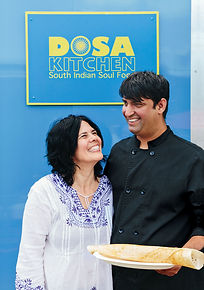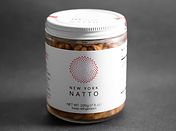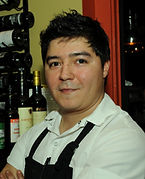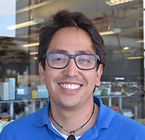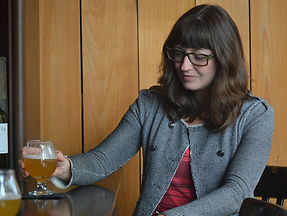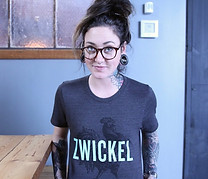festival speakers series
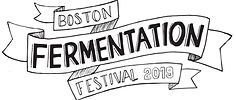
The 2019 Speaker Series will include a fabulous roster of fermentation experts like brewers, entrepreneurs, social justice focused fermenters & cutting edge fermentation enthusiasts. Please join us in the Trustees Kitchen at Boston Public Market Kitchen - each talk begins on the hour.
Make sure to check out the 2018 Speaker Series youtube videos to give you a short preview for 2019!




2019 schedule
speakers will start on the hour and more full descriptions including speaker bios are below
10:00-11:00am: 'Recipes and Radical Ideas: How Independent Publications Have Helped Launch the Fermentation Movement' with Camille Tourny of Fairmentation Magazine
11:00-12:00pm: 'The Magic of Koji' with Kirsten K. Shockey of FermentWorks
12:00-1:00pm: Volunteer Appreciation Lunch! (for BFF volunteers and speakers/organizers only)
1:00-2:00pm: 'Exploring Preservation Traditions in Russia and Central Europe' with Darra Goldstein & Cortney Burns
2:00-3:00pm: 'Art ⇄ Fermentation, Tasting Creativity in Community' with S.E. Nash
3:00-4:00pm: 'Fermenting Workplace Democracy: How local pickle makers, chocolate makers, and brewers are using the cooperative model to transform our food industry'
2019 Full Speaker Series Descriptions
10:00am 'Recipes and Radical Ideas: How Independent Publications Have Helped Launch the Fermentation Movement'
Camille Tourny, editor of Fairmentation Magazine, will talk about the role played by indie media in the rise of the fermentation movement, with a focus on zines and magazines. Through a few examples, she will explore the DIY aspect of this form of self-publishing, showing how some of these publications reached an audience well beyond the fermentation community.
Camille Tourny has a background in art history and publishing. She is the editor of Fairmentation, an independent magazine exploring the magical world of fermentation.
11:00am Kirsten K. Shockey of FermentWorks will present, 'The Magic of Koji'
Koji is a mold with many superpowers: It amplifies flavor wherever it goes. It is the secret to many traditional ferments from sake to miso but there is so much more - it can tenderize meat, make vegetables into “charcuterie”, ferment foods, and produce pickles. Come meet koji (+ enjoy a complementary tasting - Go-en Fermented Foods will be providing samples of shio and amazake!) with author Kirsten K. Shockey as she takes through an info-packed presentation on cultivating koji and using it for countless applications in your own kitchen including preparing homemade miso. Never look at mold the same way again!
Kirsten K. Shockey is the coauthor of best-selling Fermented Vegetables, Fiery Ferments and just released Miso, Tempeh, Natto and Other Tasty Ferments. Kirsten and her husband Christopher got their start in fermenting foods twenty years ago on their 40-acre hillside smallholding which grew into their organic food company. When they realized their passion was for the process, they chose to focus on teaching fermentation arts to others. They teach worldwide and host workshops on their homestead in southern Oregon. You can find her on Instagram @ferment.works or www.ferment.works.
1:00pm 'Exploring Preservation Traditions in Russia and Central Europe' with Darra Goldstein & Cortney Burns
The traditional ferments of Russia and Central Europe are so familiar that we rarely stop to consider their origins—think deli-style sauerkraut and half-sour dills. But if we look deeper into these regions with their harsh climates and poor soils, we can begin to unravel the stories of their cultures through the fermented foods they rely on. Beets are turned into kvass and rossel, the basis for the world’s best borscht, while turnips become a pungent substitute for cabbage in soups and stews. We’ll explore the interplay between necessity and creativity, showing how the techniques of food preservation, once crucial for survival, have inspired a culinary inventiveness that pushes culinary culture forward. In this demo you’ll sample several different ferments from this region and will learn how to turn raspberries into kvass and sweet or spicy peppers into fermented chili pastes + they are going to sample some fermented pepper pastes and Real Pickles beet kvass & sauerkraut.
Darra Goldstein is the Founding Editor of Gastronomica: The Journal of Food and Culture. Hailed as “a New Yorker for foodies,” the journal was named the 2012 Publication of the Year by the James Beard Foundation. She is also the Willcox B. and Harriet M. Adsit Professor of Russian, Emerita at Williams College, where she moved beyond her initial training in Russian language and literature to teach courses in food studies. Goldstein’s interest in studying food began in grad school at Stanford, where she was told that she couldn’t write a dissertation on food in Russian literature. So, as a newly minted PhD, she published her first cookbook, À la russe: A Cookbook of Russian Hospitality, which led to a stint as a spokesperson for Stolichnaya vodka when it was first introduced to the US—a fascinating exercise in cross-cultural communication during the Cold War. It also led to menu consulting for New York Russian restaurants like the Russian Tea Room and Firebird. Goldstein has published widely on food, literature, culture, and art and has organized several exhibitions, including Graphic Design in the Mechanical Age and Feeding Desire: Design and the Tools of the Table, 1500-2005, both at the Cooper-Hewitt, National Design Museum. In 2015 she published the James Beard-nominated Oxford Companion to Sugar and Sweets, for which she served as Editor in Chief. She’s the author of five cookbooks: A Taste of Russia (nominated for a Tastemaker Award), The Georgian Feast (winner of the 1994 IACP Julia Child Award for Cookbook of the Year), The Winter Vegetarian, Baking Boot Camp at the CIA (IACP award finalist), and, most recently, Fire and Ice: Classic Nordic Cooking, a finalist for the James Beard, IACP, and Art of Eating awards. For many years she was Food Editor of Russian Life magazine and continues to be the Series Editor of California Studies in Food and Culture from the University of California Press. Her new cookbook, Beyond the North Wind: Russia in Recipes and Lore, will appear in February 2020. Goldstein has consulted for the Republic of Georgia (an AgVANTAGE/USAID project on Georgian agriculture), for Norway (the European Union Northern Dimension Initiative), and for the Council of Europe, a think tank for the European Union, where she was part of an international group exploring ways in which food can be used to promote tolerance and diversity. Under her editorship the volume Culinary Cultures of Europe: Identity, Diversity and Dialogue was published in 2005. In 2013 she was named Distinguished Fellow in Food Studies at the Jackman Humanities Institute, University of Toronto, and in 2016 was honored with a Macgeorge Fellowship at the University of Melbourne. She currently serves on the Kitchen Cabinet of the Smithsonian’s National Museum of American History and on the Advisory Board of the Julia Child Foundation for Gastronomy and the Culinary Arts. www.darragoldstein.com
A native of the Midwest, Burns’ interest in food began at an early age with childhood outings to the market for comfort foods like warm corned beef and Muenster cheese. A graduate of the University of Wisconsin-Madison, Burns earned degrees in Cultural Anthropology and South Asian studies with a focus in Tibetan language, which took her to Nepal and India for a year, where she fell in love with the region’s exotic spices and flavors. Upon graduation, Burns moved to Australia, where she first began to cook professionally, and eventually returned to the States in 2001, settling in the Bay Area. In San Francisco, Burns first worked at Café Rouge under Marcia McBride, honing her kitchen skills and exploring butchery and charcuterie. From there, she moved on to the management team at Quince, where her true passion for handcrafting foods took hold. After Quince, Burns worked her way through many kitchens in the San Francisco area, spending many years working at Boulette's Larder under the tutelage of Amaryll Schwertner. Burns left San Francisco in 2006 and opened a private chef business in Sun Valley, Idaho, which took her to cook in Seattle and Hawaii as well. In 2008, she returned to California, cooking in wineries in the Napa and Sonoma Valleys and teaching at The Culinary Institute of America at Greystone. In 2011, Burns joined co-chef Nick Balla at Bar Tartine, where the duo cooked bold and innovative dishes that earned national acclaim. The pair wrote their first cookbook together in November 2014, Bar Tartine: Techniques and Recipes (Chronicle Books), which won a James Beard Foundation Award in the “Cooking from a Professional Point of View” category and an IACP Award in the “Chefs and Restaurants cookbook” category. In October 2016, Burns and Balla opened Motze, a pop-up okazu-inspired restaurant in San Francisco, then returned to their Central European roots by transforming Motze into Duna, a restaurant where the menu centers around Hungarian and Central European flavors. After Motze’s opening, Burns closed Bar Tartine in December 2016 and moved east to assist with opening Tourists, a 55-acre hotel property in North Adams, MA, where she curated the food program. After the opening she left North Adams and currently splits her time between Cape Cod and New Hampshire as she finishes writing a new book, “Nourish Me Home,” which will be published in Spring 2020. She is also consulting on the setup and extension of various preservation programs around the country.
2:00pm 'Art ⇄ Fermentation, Tasting Creativity in Community' with S.E. Nash
In Art ⇄ Fermentation, Tasting Creativity in Community, artist and fermentation practitioner S.E. Nash will lead an interactive talk on the role of fermentation as a catalyst for change. In his work as an artist, Nash pairs art and fermentation in the form of sculptural installations and socially engaged events and workshops. Compelled by the creative activities of microbes, Nash’s artworks value fermented foods as an indispensable part of our visual, sensory, and cultural landscape. This talk and kraut sampling featuring a local producer will leave your imagination brewing with ideas about how fermentation is so much more than what we put on our plates.
S.E. Nash is a visual artist and fermentation experimentalist. A fermentation residency with Sandor Katz in 2014 was the initial catalyst to create sculptures that interact with vessels of fermented foods. Sean was awarded a Rocket Grant Research and Development award in 2017 for his work on Garden Variety Soda Fountain, a sculpture for fermented sodas made with community garden grown ingredients. His 2018 essay “Fermenting Sculptures, Edges and Encounters of the Vessel and the Body,” was published in CuiZine. Nash co-authored the essay “Bubbling Bodies and Queer Microbes: Dispatches from the Foundation of Fermentation Fervor” with Stephanie Maroney, published in Fermenting Feminism. Nash’s upcoming show, Krautsourcing, at Brandeis University’s Kniznick gallery, will be on view from Nov 14, 2019 - Feb 26, 2020. Members of the public are invited to bring a jar of their homemade sauerkraut to the opening on November 14th. He is currently William T. Kemper Visiting Assistant Professor in Painting at the Kansas City Art Institute in Kansas City, MO. www.senash.com
3:00pm 'Fermenting Workplace Democracy: How local pickle makers, chocolate makers, and brewers are using the cooperative model to transform our food industry'
Join Real Pickles, Equal Exchange, and Democracy Brewing for a lively and interactive panel on how three local companies are using worker ownership and fermentation to change our food industry for the better. Learn about how these worker cooperatives are succeeding at scale, and explore the bubbly intersection of fermentation and workplace democracy. We will leave lots of time for audience Q&A and we will have samples to share! The discussion will be moderated by Greg Brodsky of Start.coop and will include:
* Lucy Kahn of Real Pickles, which is a worker owned cooperative in Western Mass that produces raw, fermented vegetables.
* Danielle Robidoux of Equal Exchange, which is a worker owned cooperative in East Bridgewater Mass that sells fair trade coffee, chocolate, and tea.
* James Razsa of Democracy Brewing, which is a worker-owned brewery and restaurant right in downtown Boston.
Greg Brodsky is the founder of Start.coop, which is a Boston based accelerator for cooperatively owned businesses. He was previously the founder of The Bike Cooperative, and a co-founder of the Independent Brewers Alliance. He is also the Board Chair of the Cooperative Development Institute.
Lucy Kahn has worked at Real Pickles Co-operative for 4 years, first as production staff, then assistant production manager, and now as a sales representative. In 2016, she became a worker-owner at Real Pickles, and she now serves as treasurer on the board of directors, a member of the worker-ownership committee, and a member of the justice and equity working group. Before working at Real Pickles, Lucy worked on urban, rural, educational, and organic CSA farms while studying global food systems and food justice movements.
Danielle Robidoux has been an organizer at Equal Exchange for the past 3 years. A long-time food activist with a Masters in International Relations and Economic Development at Umass Boston, Danielle manages a team of 4,000 food activists in the US as part of the Equal Exchange network. She is co-host of the Equal Exchange podcast The Stories Behind Our Food. Danielle has been one of the main organizers of Equal Exchange's yearly Summits bringing together producer partners internationally, citizen-consumers, and worker-owners of Equal Exchange to sit around one table and grapple with issues plaguing our food system.
James Razsa brings a passion for worker cooperatives and organizing to the team. He hails from Gray, Maine, and has a bachelor’s degree in Community Studies and Economic Justice from the University of California, Santa Cruz. His extensive experience in economic justice organizing includes working for Young Workers United, the Service Employees International Union (SEIU), as both a political organizer and a community organizer; and Jobs with Justice, where he coordinated campaigns that brought together labor, community, faith, student, and immigrant groups. He has worked sales with Equal Exchange, one of the largest worker-owned businesses in the United States. James until recently was the Director of Campaigns for 350 Massachusetts for a Better Future, a community-led climate justice organization. Last but no less important, James has five years experience in the service industry and two years at three Boston based breweries.
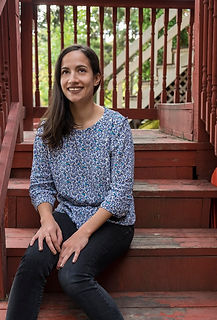
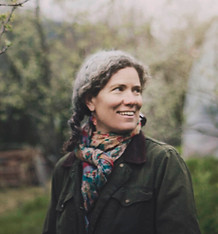
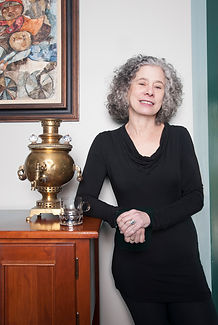
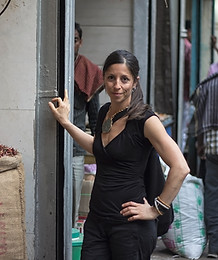


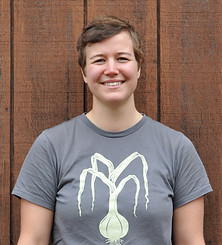
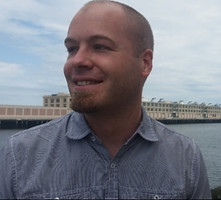

2018 schedule
see below for full videos of each talk
10-11am Foment/Ferment: Lightning Round on Social Justice & Fermentation with Ihsan Karayazi &
Armine Avetisyan, Kristina Nies & Cheryl Paswater
11-12pm Dosa making Demo with Leda Scheintaub
12-1pm The Fermentation Revolution is Speeding Up with Pia M. Sörensen, Marcos Sanchez, Sergio Florez,
Chris DaCunha and Sam Hiersteiner
1-2pm Is Natto the next big thing? With Ann Yonetani
2-3pm Miso Making with Cheryl Paswater
3-4pm Mashing the Patriarchy: Women Who Ferment Beer! With Brienne Allen, Maureen Fabry,
Jessica Alexander, Lauren Clark, and Andrea Shea
10am Foment/Ferment: Lightning Round on Social Justice & Fermentation
The theme of our *first ever* Boston Fermentation Fest lightning round is Social Justice & Fermentation. Come to this talk and listen to creative & concise presentations from a few different folks on the intersection of justice, food, politics and fermentation. Each presenter will be given 8 minutes to present and they will be lightning fast, interesting and [we promise!] thought provoking. Who will our presenters be?
-
Ihsan Karayazi & Armine Avetisyan will tell the story of Agunik, an Armenian woman who visits Kars, a small city on the eastern border of Turkey, and wants to make sure that she brings back home a particular kind of cheese yeast known as Sirden (rennet). Driven from Agunik’s passion to find this particular local yeast, the presentation will talk about disconnection from historic homeland in the context of the Armenian-Turkish conflict and an attempt to restore the connection and memory through yeast.
-
Kristina Nies will advocate how radical food social justice must include a safe place at the table for all. It is not enough to redistribute unwanted food, people deserve the right to eat the foods that they want to eat. Everyone should have access to foods that are delicious, meaningful, part of their culture(s), and safe.
-
Cheryl Paswater will connect the dots between Food, Fermentation, Feminism & Food Deserts specifically in the context of New York City.
11am Dosa making Demo with Leda Scheintaub
Join Leda Scheintaub, co-owner of Dosa Kitchen in Brattleboro, Vermont, for a demo on dosas, the iconic fermented rice and lentil crepes of South India. She’ll take you step by step through the master dosa recipe from her cookbook, Dosa Kitchen: sourcing ingredients, soaking the rice and lentils, grinding them into a batter, fermenting, then making dosas of various shapes, sizes and colors for you to sample. At the end of the demo, the winner of a free raffle will take home a fresh batch of batter to ferment and make into dosas.
Leda is the co-owner of Dosa Kitchen. She trained as a chef at the Natural Gourmet Institute in New York and is a recipe tester, editor, and writer. She is the author of Dosa Kitchen and Cultured Foods for Your Kitchen and has contributed to many other titles.
12pm The Fermentation Revolution is Speeding Up
Researchers, chefs, entrepreneurs sound off on new understanding, new advances, new energy. Panel moderated by Sam Hiersteiner, local Boston food writer, Boston Globe correspondent and fermentation enthusiast, and will include:
-
Pia M. Sörensen: Pia co-teaches and manages the General Education course Science and Cooking: From Haute Cuisine to Soft Matter Science at Harvard University, which explores how everyday cooking and haute cuisine can illuminate basic principles in chemistry and physics. She serves as lead course developer and co-instructor of Science & CookingX, an online version of the college course and one of the largest courses on Edx. Sörensen's interest in small molecules and fermentation led her to design a novel, project-based course: Flavor Molecules of Food Fermentation: Exploration and Inquiry. The course is unique in that it uses food fermentations as a way to explore not only microbial communities and characterization, but also metabolism and chemical properties and characterization of the small molecules that contribute taste and aroma in fermented foods.
-
Marcos Sanchez: Chef de Cuisine at Tasting Counter in Somerville and passionate fermentation experimenter
-
Sergio Florez: Fermentation Engineer at Ginkgo Bioworks
-
Chris DaCunha, Director of Bioprocess Development at Indigo Agriculture. Chris is an avid fermentation enthusiast who also happens to ferment things professionally. At Indigo he leads the Bioprocess Development team using fermentation technology to grow up large quantities of beneficial fungi and bacteria that are used by farmers to restore a healthy endophytic microbiome to crop plants.
1pm Is Natto the next big thing?
NYrture Food sure thinks so. Natto is a traditional Japanese fermented soybean delicacy which is also probiotic and full of Vitamin K2 and natural blood-thinning nattokinase enzymes. Dr. Yonetani will talk about the cultural history, fermentation science, American agricultural connections, amazing health benefits & modern culinary versatility of this deliciously unique superfood.
NYrture Food was founded by Ann Yonetani, a microbiologist with life-long passions for both food and science. NYrture Food is committed to creating fresh, honest food with probiotic power and of the highest quality. We believe that nurturing our microbiome is a vital part of the recipe for optimal health. We are also committed to providing credible, evidence-based educational information about the microbiome and the utility of probiotic foods. As a professor at the New School university in New York, she teaches about the intersection of these two worlds in the Food Studies department. Before becoming a natto maker, Ann worked for over 15 years as a biomedical research scientist in labs at Columbia University, Harvard Medical School, UCSF, Cold Spring Harbor Laboratory and the Basel Biozentrum. Along the way, she also enjoyed cooking in restaurants and soup kitchens in Philadelphia, San Francisco and Boston. She received her BA in Biology at the University of Pennsylvania, MS in Biochemistry from the University of California, San Francisco, and PhD in Microbiology from Columbia University College of Physicians & Surgeons.
2pm Miso Making with Cheryl Paswater
In this short class we will cover the basic science behind making miso, why it is good for you and how to make it yourself. Miso is a traditional Japanese product produced by fermenting soybeans with salt and the fungus Aspergillus oryzae called Koji. High in protein and rich in vitamins and minerals, miso played an important nutritional role in Japan. We will cover soy miso and non soy misos like nut misos in this class. Cheryl will also touch on creative uses for miso beyond simply miso soup!
Cheryl Paswater is an Certified Fermentationist, Educator, and Health Coach, who after a near-death experience, turned to holistic medicine for help. After radical diet and lifestyle changes, she started teaching on fermentation, old world food preservation, healthy eating, sustainable food, and holistic health. Cheryl runs a popular fermentation project and CSA called Contraband Ferments. She lives in Brooklyn, NY.
3pm Mashing the Patriarchy: Women Who Ferment Beer!
The brewing of beer -- one of the oldest and most universal forms of fermentation -- has long been the domain of men. But some of the earliest beer makers were women -- in ancient Egypt, where it was a sacramental drink made to accompany Pharaoh into the afterlife; in household kitchens, where females fermented beer as part of their daily routines. These days an increasing number of women are bringing their perspectives to the ongoing craft beer boom -- in the brew house, behind the bar, in the lab, in scholarship and in print. This panel will introduce audiences to the following pioneers:
-
Brienne Allen, brewer at Notch in Salem and head of the Pink Boots Society chapter of Boston (Pink Boots, an international non-profit, supports women in the beer industry)
-
Maureen Fabry, brewer and co-owner of CraftRoots Brewing in Milford, the first all-female owned brewery in Massachusetts and board member for the Mass Brewers Guild
-
Jessica Alexander, PhD, microbiologist at Lamplighter Brewing Co. in Cambridge
-
Lauren Clark, freelance journalist, former bartender & brewer, and author of Crafty Bastards: Beer in New England from the Mayflower to Modern Day
-
Moderator: WBUR arts & culture reporter Andrea Shea, a former brewer who continues to track and appreciate the evolution of the craft beer industry. Read a recent fabulous WBUR story on women in the beer industry by Andrea HERE.
